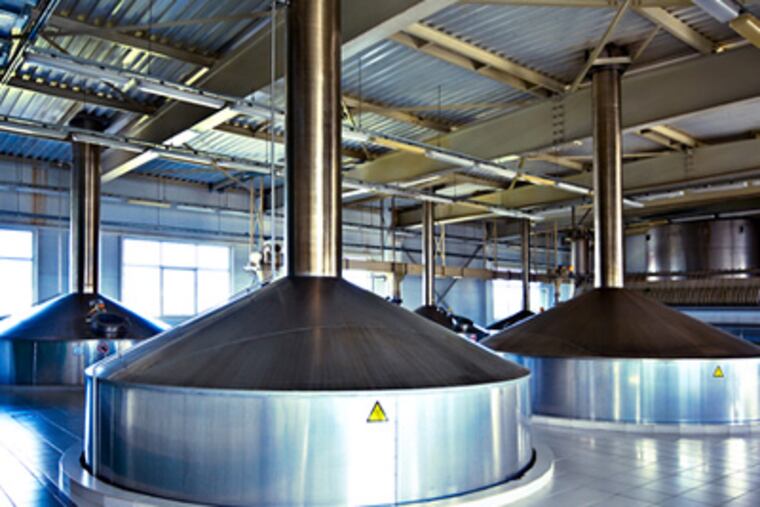Joe Sixpack: Brewers go with the flow on water conservation
DON'T LOOK NOW, but the world's supply of fresh water is running out. Which means, to put this in terms beer drinkers can appreciate, that yellow stuff in the bottle you're holding is an endangered species.

DON'T LOOK NOW, but the world's supply of fresh water is running out. Which means, to put this in terms beer drinkers can appreciate, that yellow stuff in the bottle you're holding is an endangered species.
Maybe not quite yet, but with a worldwide water shortage predicted within the next 50 years, breweries are racing to cut their use of this shrinking resource.
This is no small matter, for while malt, hops and yeast provide most of the flavor in your favorite brew, water is by far the main ingredient.
And not just the stuff in your bottle.
Breweries use thousands upon thousands of gallons to clean kettles, kegs and other equipment. Even more is used to irrigate farmland to raise the grain needed for malt.
According to international brewing giant SABMiller, it takes 155 liters of water to produce 1 liter of beer at its Carling plant in South Africa. The vast majority is used for agriculture.
But even if you pare farming from the equation, industry sources say it still takes between 72 and 120 ounces of water to produce a single 12-ounce bottle of ale. That's a ratio of between 6 and 10 to one, a ratio that the United Nations wants breweries to drop to 5:1.
Many breweries have already cut down on their guzzling.
Jacob Leinenkugel Brewing of Chippewa Falls, Wis., for example, says it has reduced its water consumption by 35 percent over the past nine years through conservation and methods to reuse supplies.
Odell Brewing in Fort Collins, Colo., has cut back so much, it now takes fewer than 36 ounces of water to produce each of its 12-ounce bottles.
"Water is definitely on everybody's radar," said Lucy Saunders, an author and organizer of the first Great Lakes Craft Brewers and Water Conservation Conference, held last week in Milwaukee.
Saunders, who launched the conference out of her own love of the Great Lakes, said a severe drought in Wisconsin last year helped spark regional concern about environmental pressures on the lakes.
"There are issues like water usage, wastewater disposal, runoff into the lakes - all kinds of dangerous practices. None of these are new, and they're all accelerating," she said. "So I thought, let's get craft brewers involved in this because they rely 100 percent on having fresh and safe and affordable water available."
The conference speakers focused both on conservation and recycling to reduce waste, through everything from basic changes in plumbing codes to high-tech equipment.
"Even though water is not overly expensive where we live, I think we should do our best not to waste it," said Brian O'Reilly, brewer at Sly Fox Brewery in Phoenixville, who attended the conference. "There are always ways to improve."
One brewery in Atlanta thinks it has come up with perhaps the simplest solution: rainwater.
In September, 5 Seasons Brewing began making all of its beer with water collected from the roof of its own facility.
It sounds unsanitary (think pigeon poop). But owner David Larkworthy said that by the time it reaches its supply tanks, the rainwater is filtered six times and sterilized with ultraviolet rays.
"Compare that to the public water supply, which comes from water on the ground that goes through drainage systems to a plant where it is cleaned up and then sent to you in 100-year-old pipes," Larkworthy said. "Ours is pure and pristine rainwater harvested out of the clouds."
The brewery installed the rainwater collection and filtering system following a two-year drought across the southeastern United States that dried up reservoirs and groundwater supplies. Residents across the region were prohibited from watering their lawns and washing cars, and new businesses were banned from hooking up to municipal water supplies.
The system is expensive, but, Larkworthy said, "The real benefit in using it is in not using other water and coming up with a better-quality beer."
"Joe Sixpack" by Don Russell appears weekly in Big Fat Friday. For more on the beer scene in Philly and beyond, visit www.joesixpack.net. Send e-mail to joesixpack@phillynews.com.